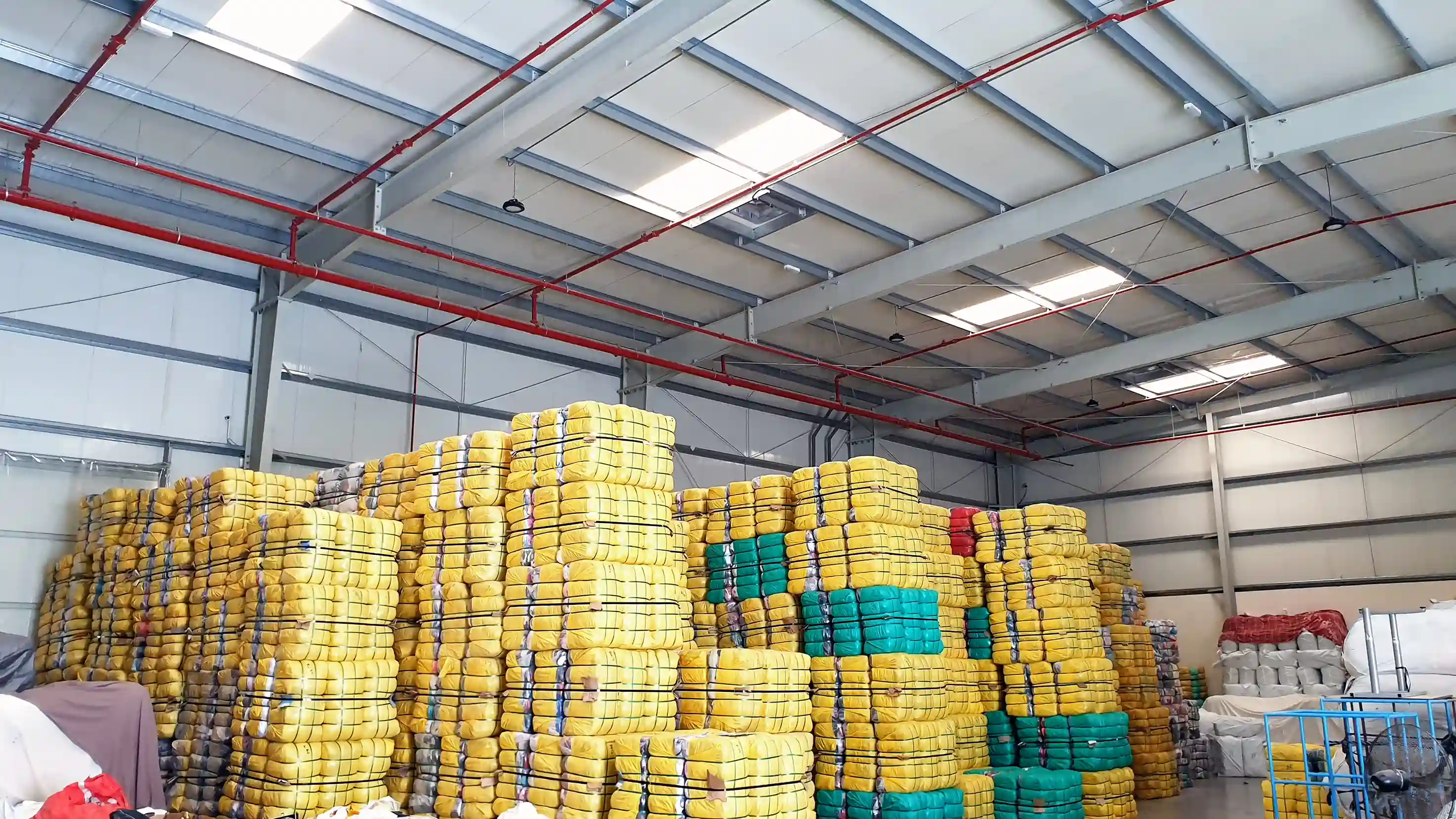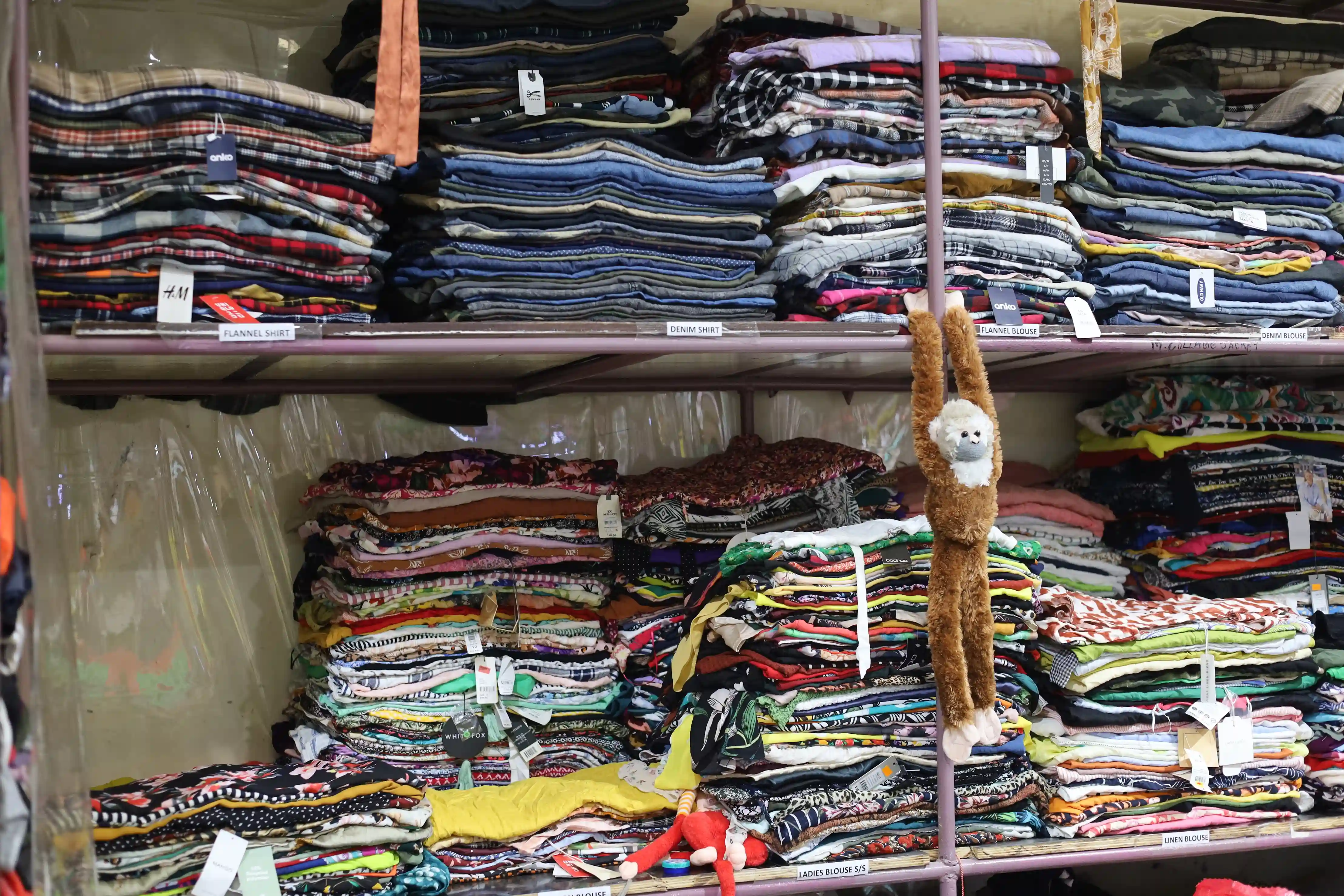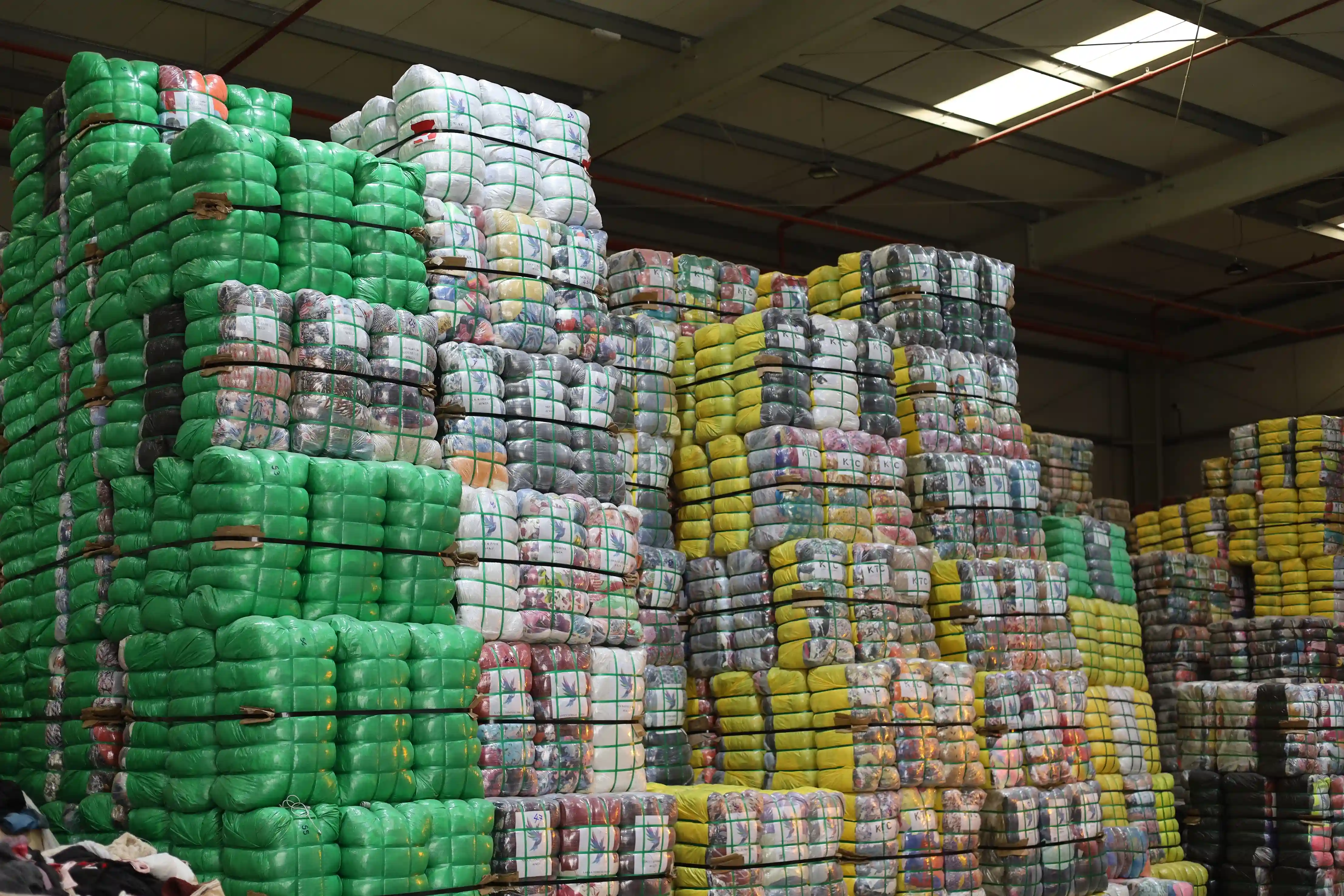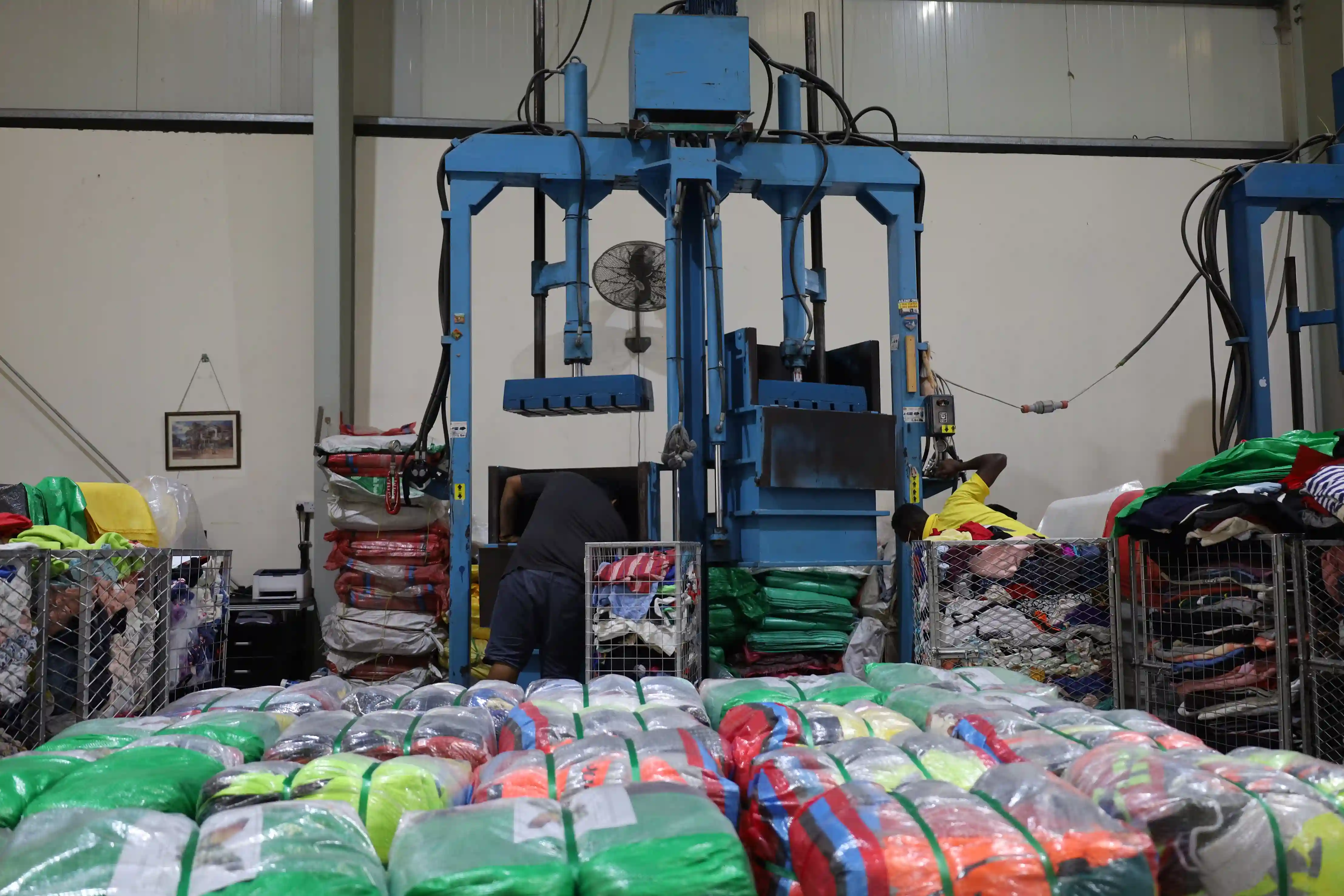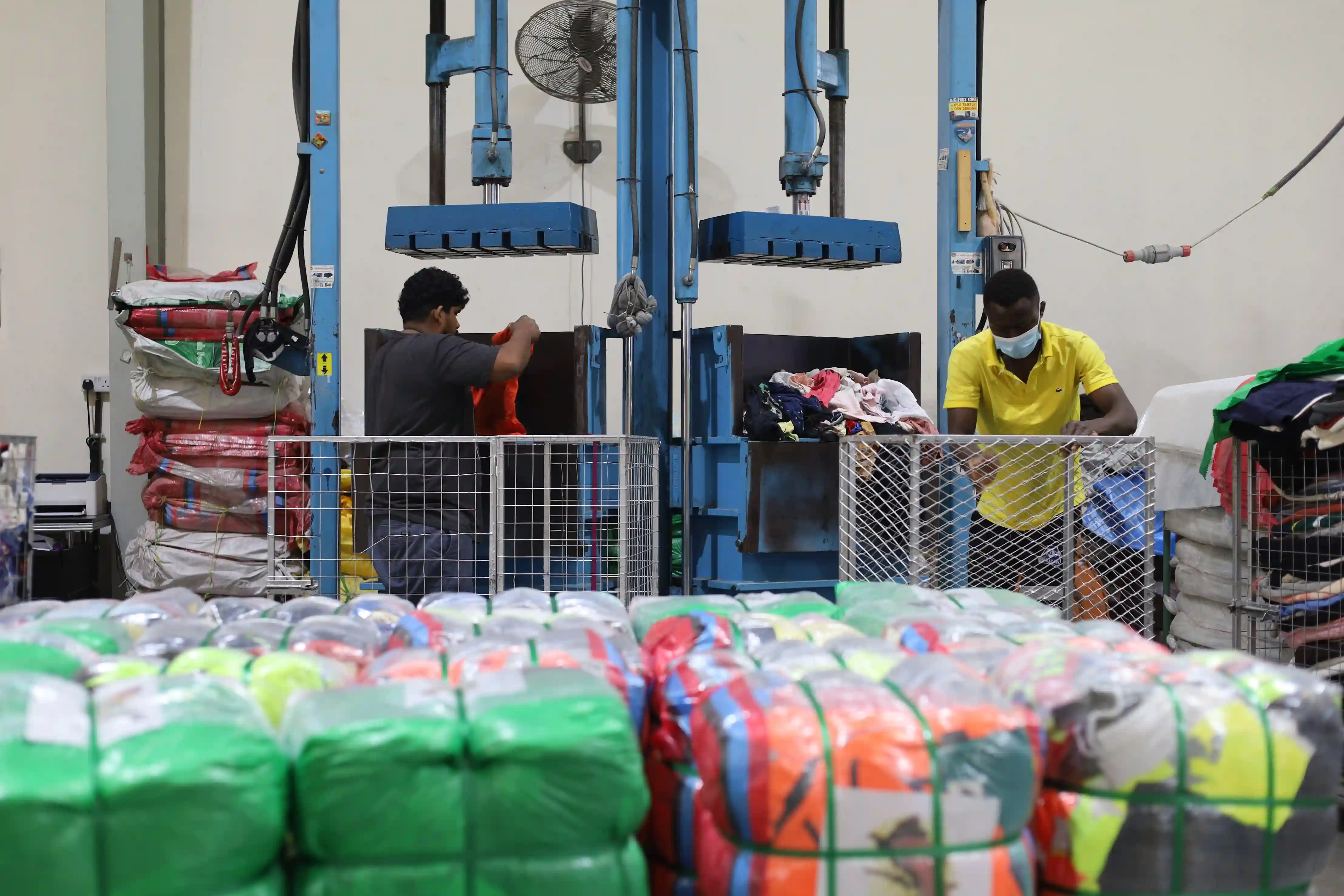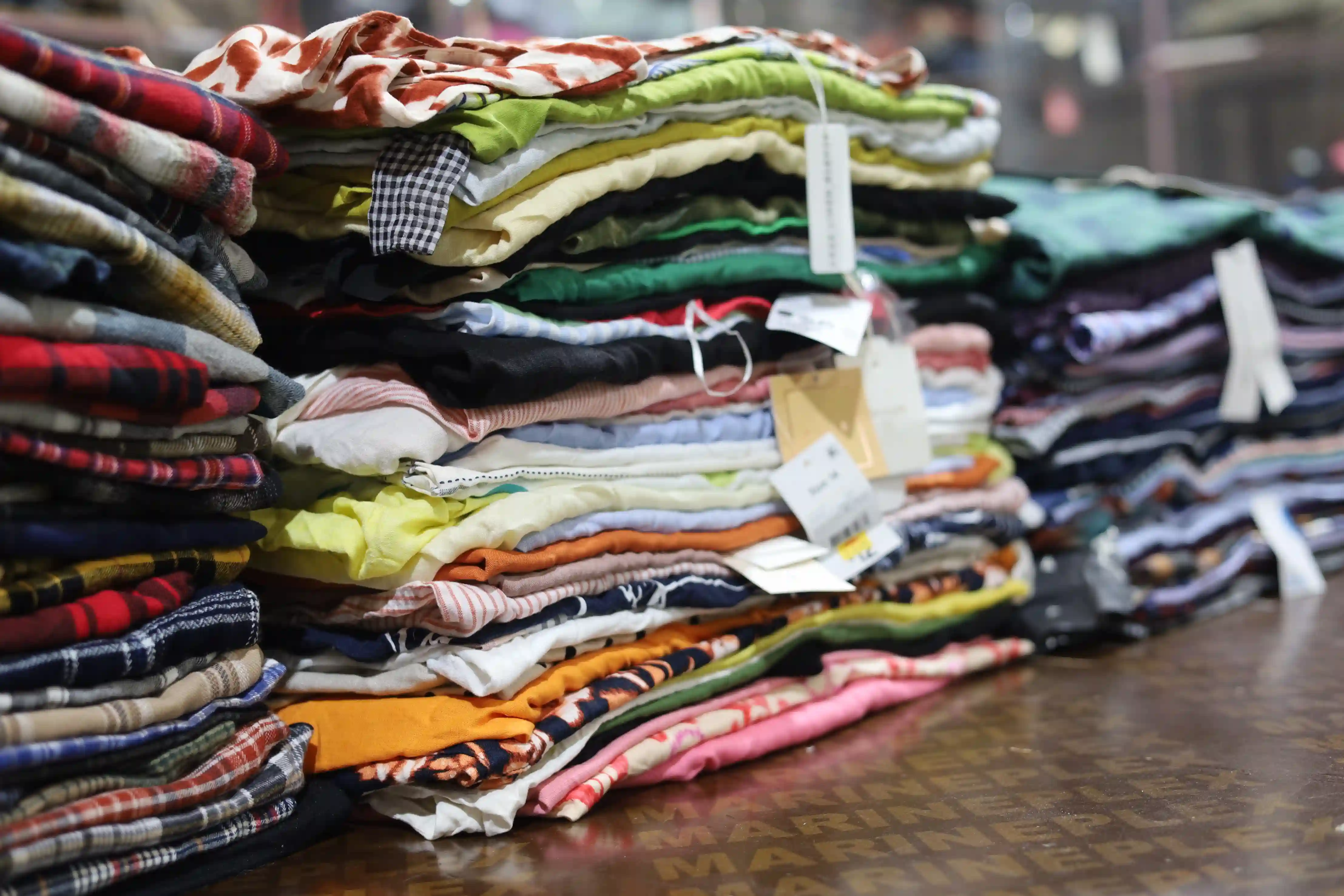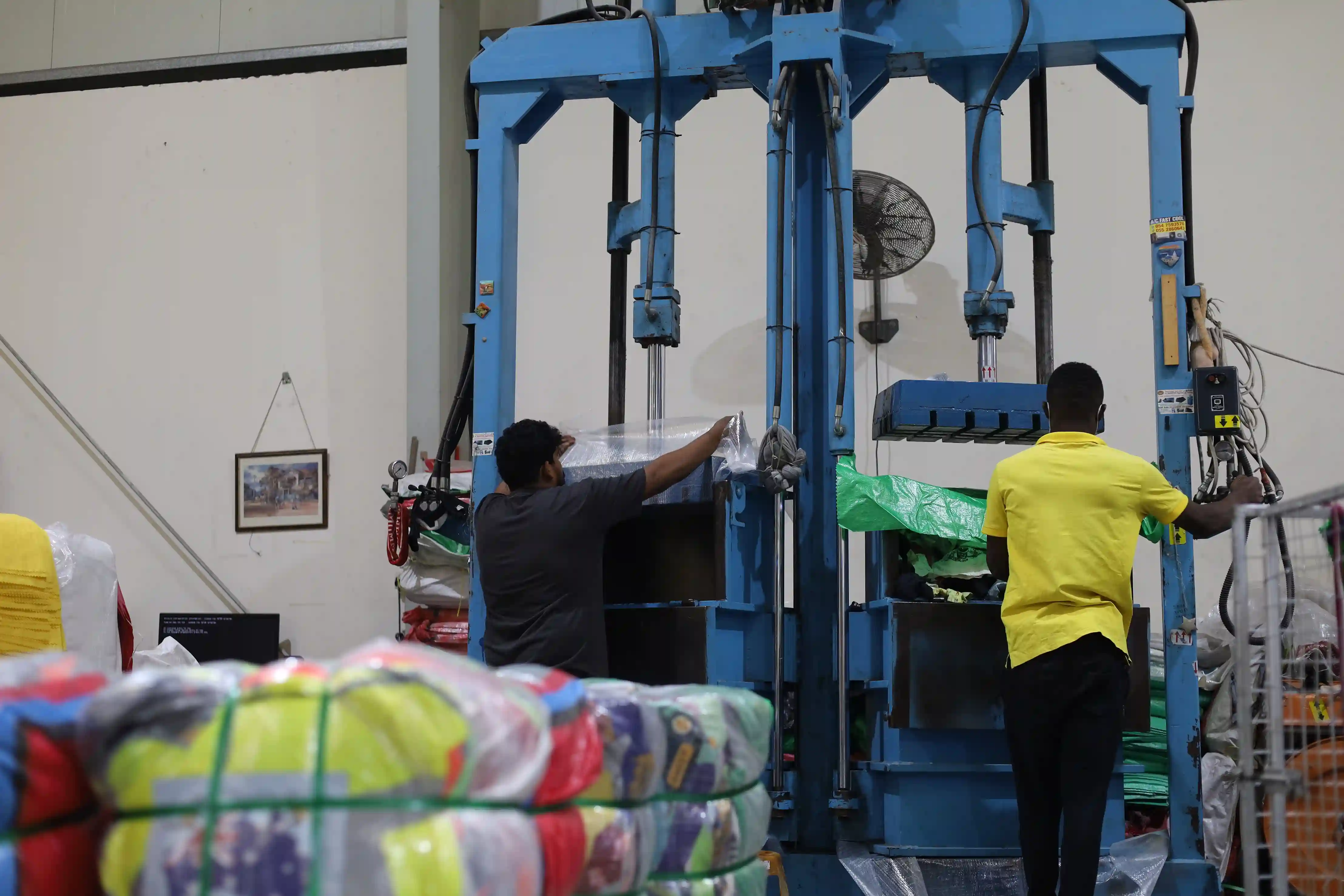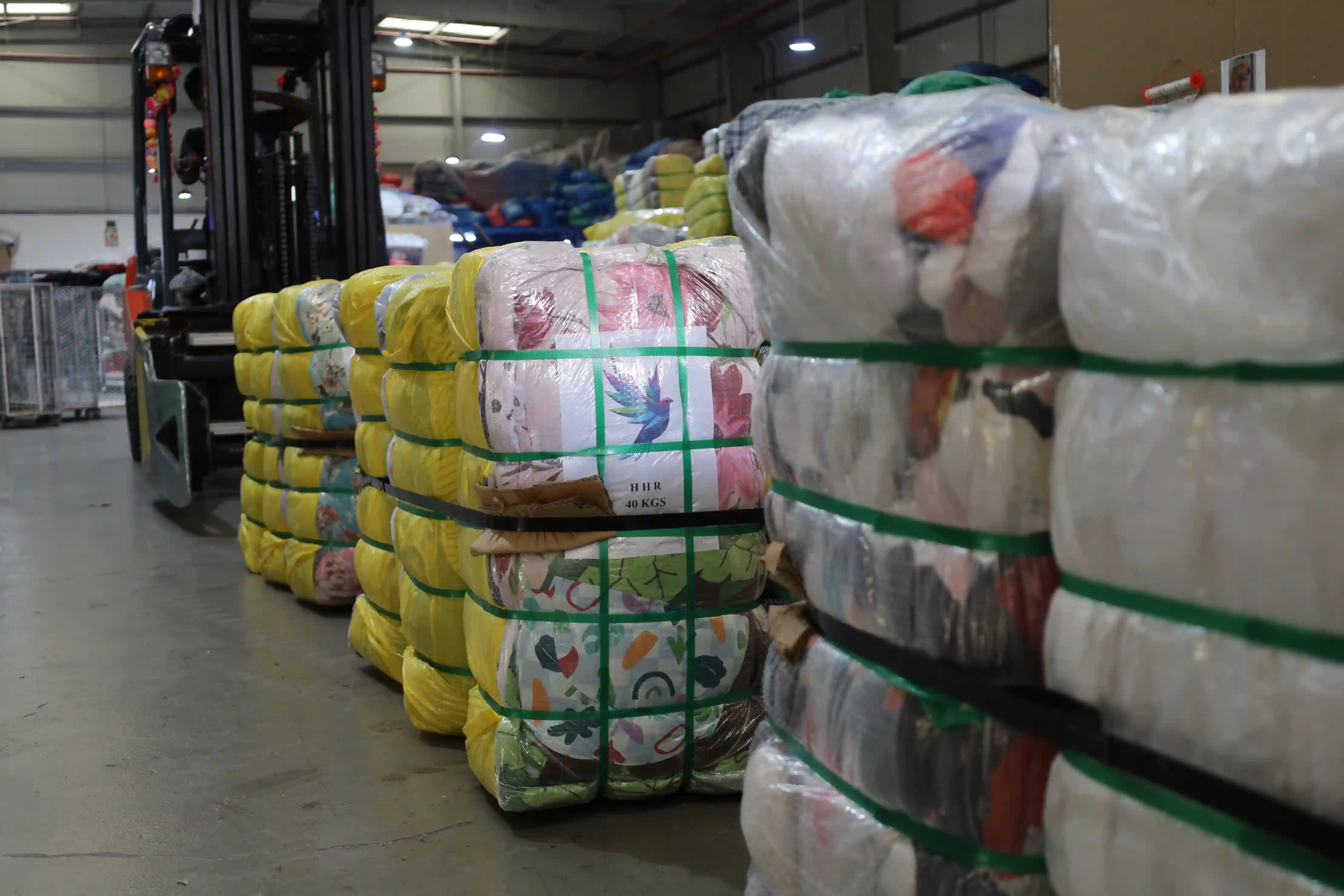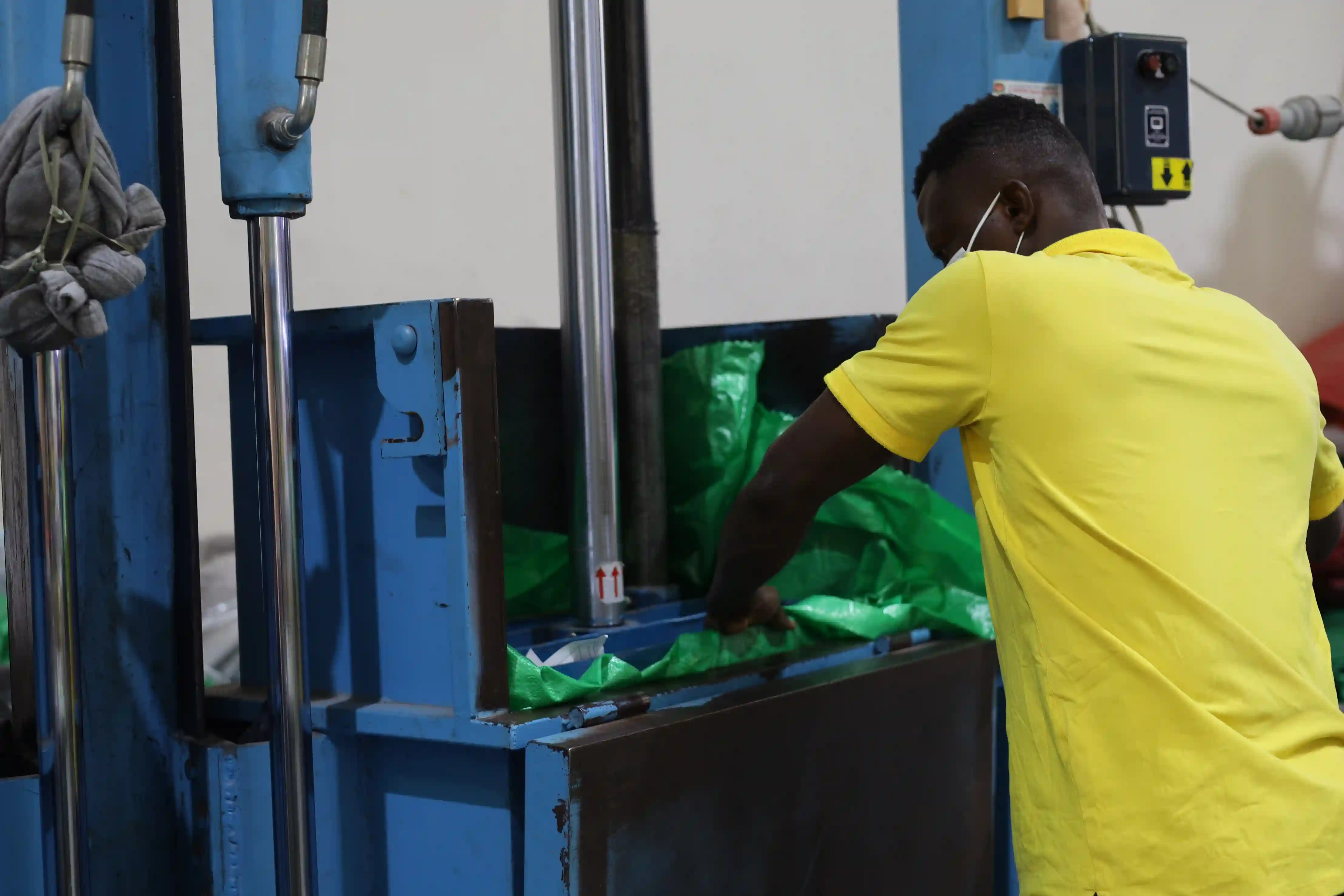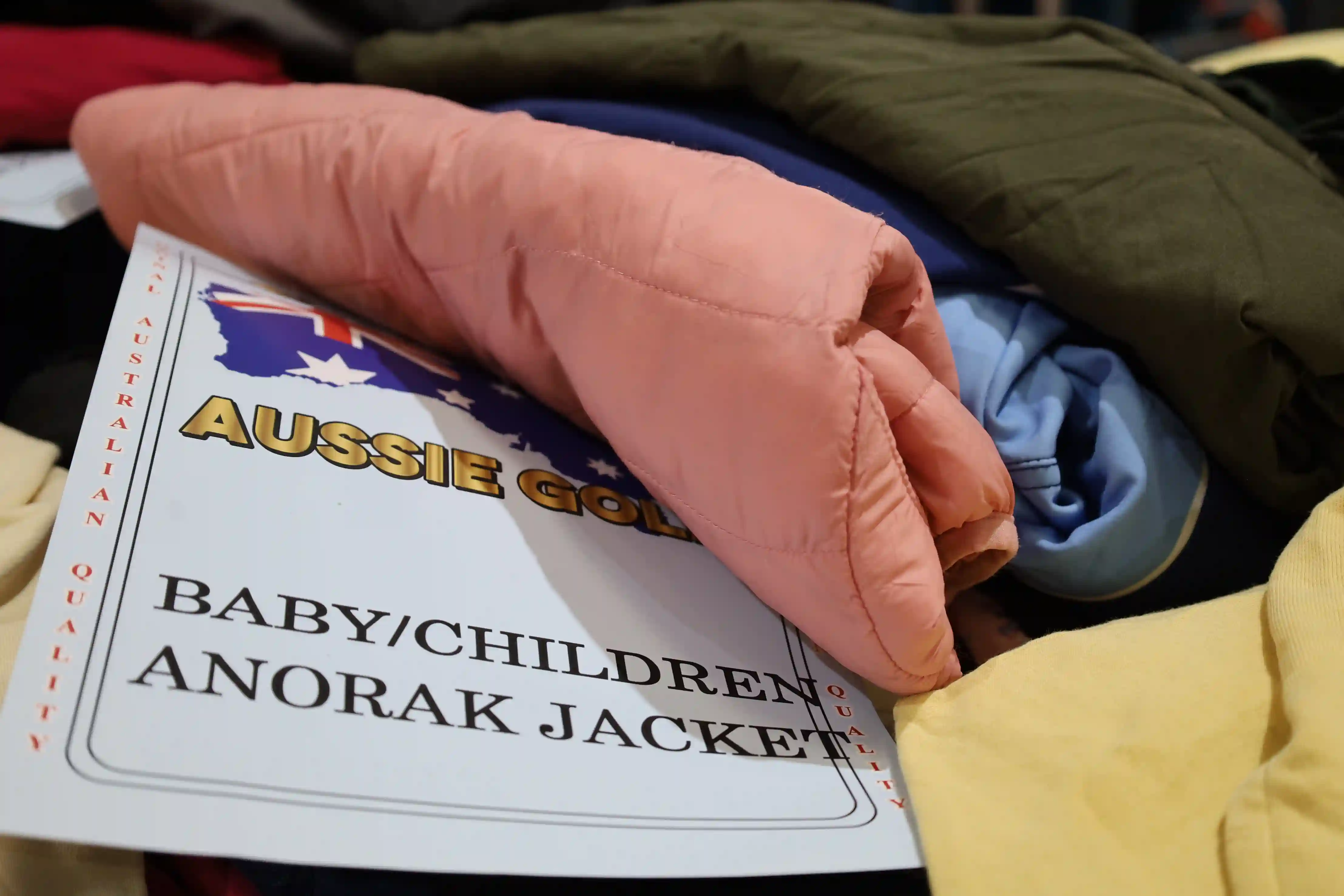Free Shipping on orders over $99
100% Authentic Products
7-Day Easy Returns
Worldwide Shipping Available
WELCOME TO Al ASDIQA TRADING
FOUNDER AND OWNER
Mr. Binoy Thomas Sebastian is the visionary owner of our company, serving as both director and general manager.
With a hands-on approach, he oversees every facet of the business to ensure seamless, hurdle-free operations.
From managing accounts to orchestrating imports and exports, Mr. Sebastian’s meticulous attention to detail
keeps the company running smoothly. His leadership extends across all aspects of the organization, ensuring
that sustainability and excellence remain at the forefront. Together with Ms. Rani Sebastian, his steadfast
partner in management, drives our mission forward, making our company a leader in the used clothing industry.
Ms. Rani Sebastian is a co-founder and co-owner of our company, embodying strength and vision in her multifaceted roles.
As operational manager, quality control manager, and sales manager, she ensures every process—from production to
delivery—meets the highest standards. With a keen eye for detail, she upholds the quality of our recycled clothing,
aligning with our sustainability goals. Ms. Sebastian excels in building and maintaining strong client relationships,
fostering trust and reliability that pave the way for long-term business partnerships. Her dynamic leadership, alongside
Mr. Binoy Thomas Sebastian, propels our company forward, blending purpose with profitability.
OUR AIM
Our Company's Aim in the Used Clothing Business
At our company, sustainability and the recycling of used clothes form the cornerstone of our mission.
We believe that fashion doesn’t have to come at the expense of the planet, and we’re committed to
proving that style and environmental responsibility can go hand in hand. Our aim is to transform
the way people think about clothing by giving new life to pre-loved garments and reducing the staggering
amount of textile waste that burdens our landfills.
Every year, millions of tons of clothing are discarded, often after minimal use, contributing to pollution
and resource depletion. Our company steps in to break this cycle. By collecting, sorting, and redistributing
used clothes, we ensure that these items are either reused as-is or creatively repurposed into something new.
This process not only conserves the energy and raw materials—like water, cotton, and dyes—that would have been
spent producing new garments but also cuts down on the carbon emissions tied to textile manufacturing.
Recycling is at the heart of what we do. For clothes too worn to be resold, we explore innovative ways to keep
them out of the waste stream—whether that’s through upcycling into fresh designs, transforming them into textile
fibers for new products, or partnering with organizations that can repurpose them into insulation, rags, or other
practical goods. Our goal is zero waste, where every thread finds a purpose.
Sustainability isn’t just a buzzword for us; it’s a promise. We strive to educate our customers about
the impact of their choices, encouraging a shift toward a circular economy where clothing is valued for
its potential beyond a single wear. By choosing our company, you’re not just buying a piece of clothing—you’re
joining a movement to protect the environment, reduce waste, and redefine fashion for a greener future.
EMPOWERING YOUR CLOTHING PRESENCE & EXPERIENCE
HOW WE WORK
The process of sorting, grading, baling, and exporting containers of used clothing is a key part of the global
secondhand clothing industry. Here’s a detailed breakdown of each step how we work.
SORTING
Sorting is the initial stage where used clothing, often collected from donations, thrift stores, or textile
recycling programs, is organized into manageable categories. Workers or automated systems separate the
clothing based on factors like:
Type:
T-shirts, jeans, dresses, jackets, etc.Material:
Cotton, wool, polyester, etcCondition:
Wearable (reusable) vs. damaged (for recycling or rags).Season:
Summer wear (e.g., shorts) vs. winter wear (e.g., coats).
Sorting is typically done by hand in large warehouses, where items are placed
into bins or conveyor belts. The goal is to streamline the next step and
ensure only usable items proceed to grading.
GRADING
Grading involves assessing the quality of the sorted clothing to determine its market
value and destination. This is a more detailed evaluation, often done by trained workers,
and clothing is classified into tiers such as:
Grade A:
High-quality items with minimal wear, stains, or damage. These are often sold in
premium second hand markets (e.g., vintage shops or exported to wealthier countries).
Grade B:
Moderate wear but still wearable. These are typically sent to developing markets
or discount outlets.
Grade C:
Heavily worn or slightly damaged items, often repurposed for industrial use
(e.g., rags) or low-cost markets.
Unsellable:
Torn or stained beyond repair, diverted to textile recycling or disposal.
Grading standards vary by company and destination market, influenced by demand for
specific styles or durability.
Baling
Once sorted and graded, the clothing is compressed into bales for efficient storage and transport.
This process uses hydraulic baling machines that pack the clothes tightly into uniform blocks,
typically wrapped in plastic or fabric covers. Bales vary in size and weight:
Small bales:
40–45 kg (88–100 lbs),
common for local distribution and exporting.
Large bales:
400–500 kg (880–1100 lbs), standard for international shipping. Baling reduces volume,
making it cost-effective to ship large quantities. Each bale is labeled with details like grade,
type, and weight to inform buyers
EXPORTING
Our distribution—40% to Africa, 30% to GCC countries, and 30% to Asia—reflects a strategic approach to tapping into key global
markets for secondhand clothing. This spread balances regions with high demand for direct reuse (Africa), re-export potential (GCC),
and mixed reuse and recycling needs (Asia). With a steady output of 10 containers per month, our operation contributes to the global
trade of used clothing, addressing both economic and practical demands while navigating the complexities of international logistics
and market preferences.
Our 40-foot containers are loaded with 700 bales of used clothing each, a process efficiently handled by expert forklift drivers.
These skilled operators maximize space and ensure secure placement, stacking the bales—typically weighing 40-45 kg each—to fit the
container’s capacity of roughly 28-30 tons. Their precision guarantees safe transport across long distances, whether bound for Africa,
GCC countries, or Asia, maintaining the integrity of the cargo from warehouse to destination.
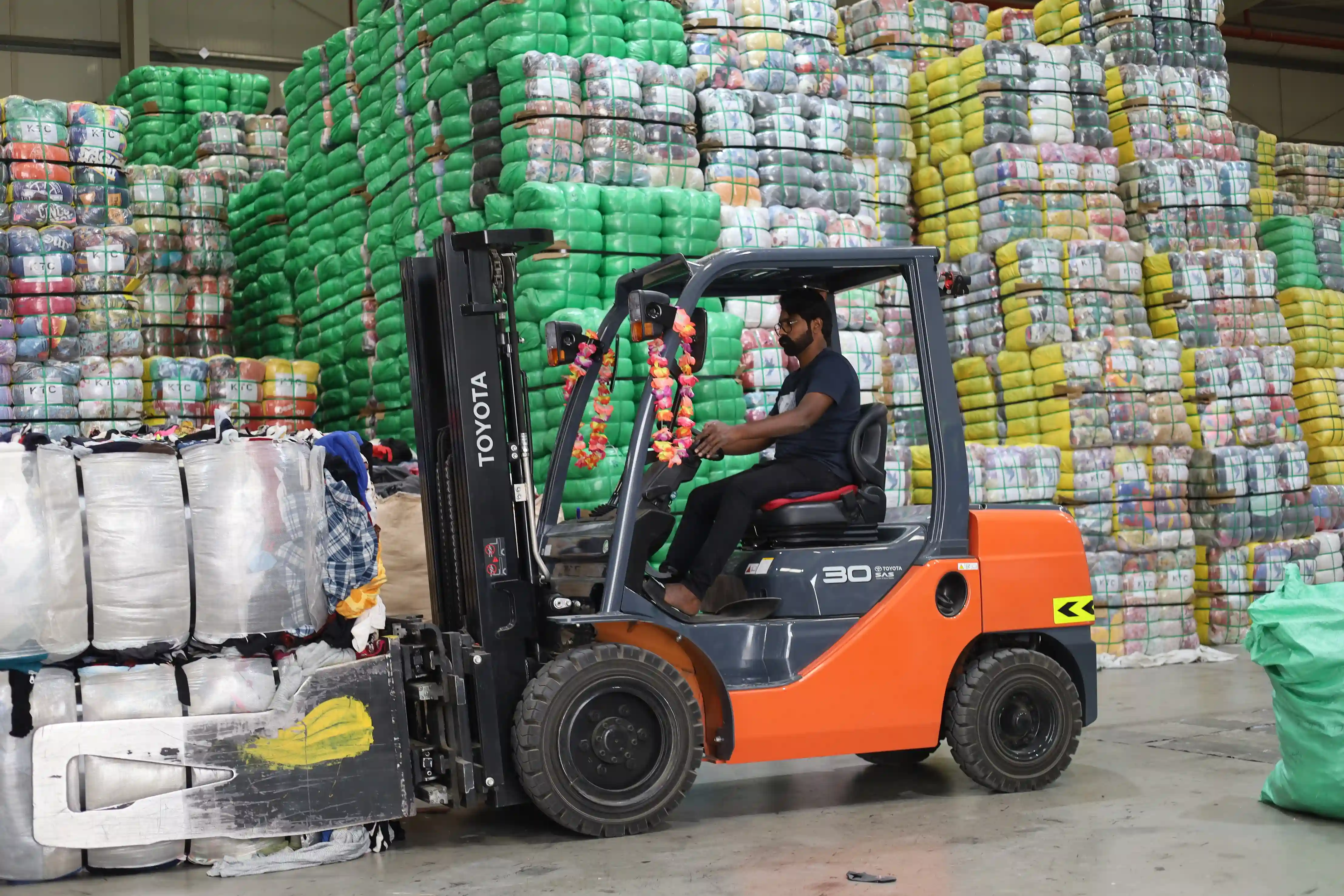
OUR TEAM
At our company, our workforce is a vibrant tapestry of talent, hailing from diverse nationalities including
India, Sri Lanka, Nepal, and various regions of Africa. This multicultural team brings a rich blend of perspectives,
united by a shared commitment to sustainability and excellence in the used clothing industry. Our grading workers,
with 10-15 years of experience, are seasoned experts in their craft. Their deep knowledge allows them to adapt
seamlessly to customer requirements, ensuring every article is sorted and processed with precision and clarity.
There’s no clumsiness here—just a dedication to delivering the best possible product.
Our male workforce operates with remarkable energy and efficiency. Whether they’re packing bales using hydraulic
machines or loading and unloading containers, they tackle each task with vigor and focus, ensuring smooth operations
at every step. Their strength and enthusiasm are vital to keeping our supply chain moving.
Leading this dynamic team is Ms. Rani Sebastian, the backbone of our company. A strong and inspiring woman,
Ms. Sebastian fosters a positive relationship with every worker, drawing out their best efforts to achieve
exceptional results. Her leadership ensures that our diverse team works as a cohesive unit, delivering quality
and sustainability in every piece of clothing we handle.
OUR PRODUCTS
Cloth Design, trading, Branding & Marketing.


